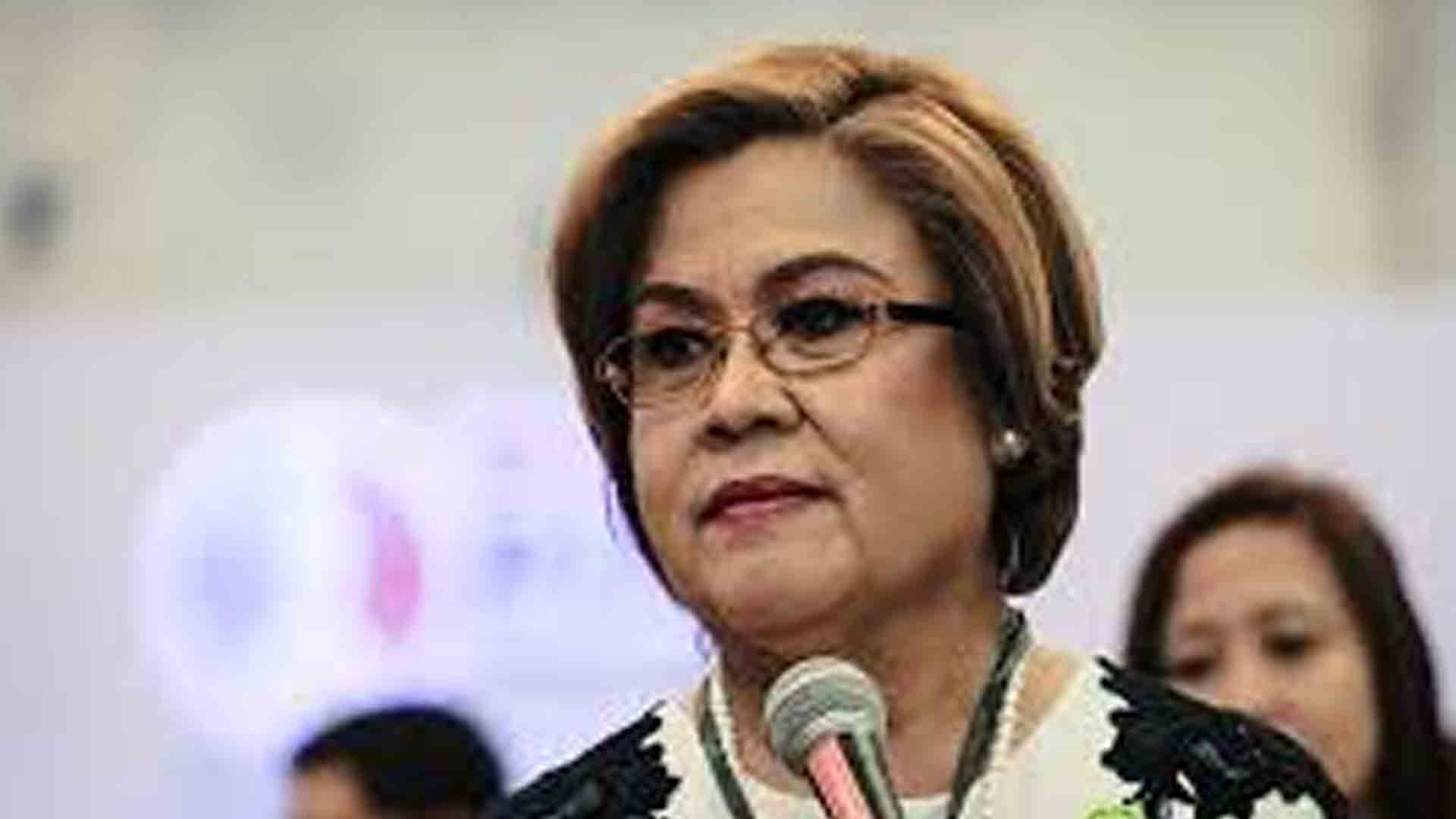Senator Leila M. de Lima has filed a Senate bill seeking to preserve and protect the images and recordings from security cameras not only to be used as possible leads but also as evidence in building up charges against suspected criminals.
De Lima, a former justice secretary, filed Senate Bill (SB) No. 1073 which mandates the preservation, protection and authentication of the data recording from closed circuit television (CCTV) cameras to be used for investigation and prosecution of crimes.
“Justice that would have been denied from grieving families is rightfully served thanks to the availability of CCTV footages. Thus, it is incumbent upon us to enact a law to preserve the recorded video as soon as an incident within the vicinity of the security camera is identified,” she said.
“As government offices and private establishments are usually unable to store recorded video data for a long time, it is prudent that the data, which can be used as evidence for criminal prosecution, be stored in a nationally maintained redundant storage system,” she added.
SB 1073, also referred to as “Security Camera Evidence Preservation Act,” provides for a mechanism where videos recorded from CCTV cameras are preserved and duly authenticated to aid law enforcement agencies in their campaign against crimes.
De Lima cited events when security cameras have been very crucial in recording criminal activities, including instances when an employee of the Bureau of Customs (BuCor) was caught by the CCTV camera accepting bribe money and when a woman was captured by the security camera being shot dead by her robber, in 2016.
Yet despite the presence of CCTV cameras in private and public establishments, the lady Senator from Bicol maintained that criminal elements that seek to erode the effectivity of the pieces of evidence, continue to lurk.
“Video recordings of criminal activities have been shown to be the subject of interest of those who aim to have them destroyed with the goal of removing any trace of evidence of the perpetrators’ participation in the crime,” she said.
In citing examples of efforts by criminal elements to tamper with evidence, De Lima recalled the murder of the late Albuera Mayor Rolando Espinosa while inside his detention cell and the involvement of an RCBC branch to move stolen money from the Bangladesh Bank.
Notably, both the Espinosa and RCBC cases involve highly-suspicious disappearances of CCTV footages.
Under SB No. 1073, the Department of the Interior and Local Government (DILG) and the National Intelligence Coordinating Agency (NICA) shall establish and maintain a registry of all security cameras owned and operated by government offices and private establishments, and institute measures to preserve the confidentiality of this registry.
The measure also proposes that all government offices and covered private establishments who own and operate security cameras shall be required to maintain recorded data from their security cameras for a period of two months from the date of recording.
The officers-in-charge (OICs) of the security cameras, under the measure, are responsible in procuring the equipment necessary for security cameras and storage devices, and reporting within 24-hours from discovery to the DILG and DICT any malfunction or defect in the security camera or storage device, among others.








